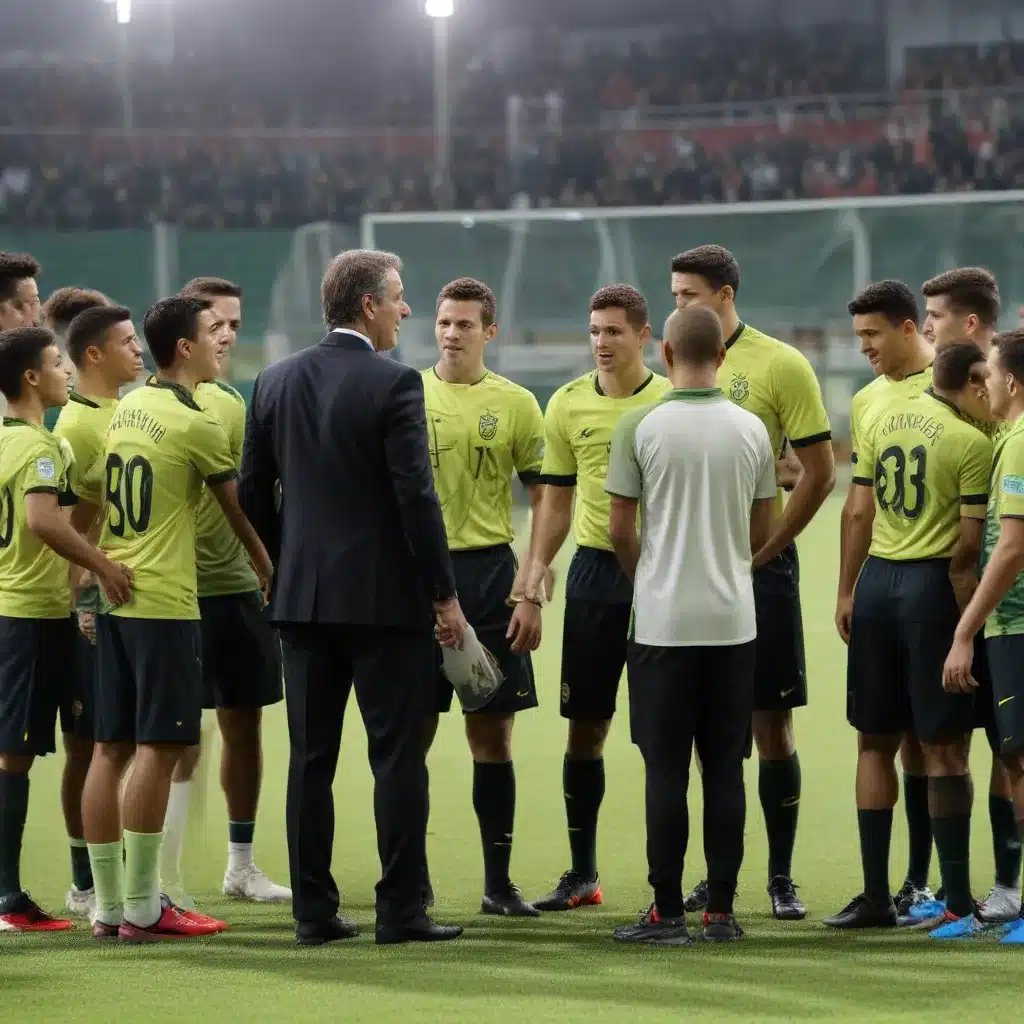
The Seleção: Brazil’s National Football Team
Brazil’s national football team, known as the Seleção, has long been synonymous with the beautiful game. With a rich history spanning over a century, the Seleção has captivated audiences worldwide with its mesmerizing style of play, technical brilliance, and unparalleled success. From the dazzling dribbles of Pelé to the free-flowing artistry of Ronaldinho, the Seleção has consistently produced some of the most iconic players the sport has ever seen.
But beyond the individual stars, the Seleção’s impact on global football extends far beyond the pitch. The team’s distinctive tactical philosophies and coaching methodologies have had a profound influence on the development of football coaching education worldwide. The Brazilian approach to the game, often referred to as “Jogo Bonito” (the Beautiful Game), has inspired generations of coaches to rethink their approach to the sport, emphasizing creativity, adaptability, and a deep understanding of the game’s tactical nuances.
Coaching Education in Brazil
The Brazilian Football Confederation (CBF) has played a pivotal role in shaping the country’s coaching education landscape. Recognizing the importance of developing well-rounded, tactically astute coaches, the CBF has invested heavily in grassroots development programs and elite-level coaching courses.
At the grassroots level, the CBF has implemented comprehensive programs aimed at nurturing the next generation of Brazilian football coaches. These initiatives focus on instilling the core principles of the “Jogo Bonito” philosophy, emphasizing the importance of technical skill, tactical awareness, and a player-centric approach to coaching.
“The CBF’s grassroots programs are designed to not only produce skilled players, but also cultivate coaches who can inspire and empower the next generation,” explains João Mário, a respected youth development specialist within the Brazilian system. “By immersing these young coaches in the rich traditions and tactical nuances of Brazilian football, we’re ensuring that the Seleção’s legacy continues to be passed down, shaping the future of the game worldwide.”
At the elite level, the CBF’s coaching education courses have gained international recognition for their rigorous and innovative approach. The CBF’s Pro License program, for example, is widely regarded as one of the most comprehensive and demanding coaching qualifications in the world, attracting aspiring tacticians from across the globe.
“The CBF’s coaching education programs are not just about imparting tactical knowledge,” says Luís Filipe, a former Seleção assistant coach. “They’re about instilling a deep understanding of the game’s philosophical underpinnings, the importance of player development, and the ability to adapt to ever-changing match situations. This holistic approach is what sets Brazilian coaching education apart.”
Tactical Philosophies of Brazilian Football
At the heart of the Seleção’s global impact lies its distinctive tactical philosophies, which have evolved and adapted over the decades while maintaining a core essence. The “Jogo Bonito” approach, championed by legends like Pelé and Garrincha, emphasizes the beautiful, free-flowing style of play that has captivated audiences worldwide.
“The Jogo Bonito is not just about technical virtuosity,” explains renowned football historian, Paulo Cézar. “It’s about a deep understanding of the game’s rhythms, the ability to read and exploit the spaces on the pitch, and a commitment to entertaining the crowd. This philosophy has become a hallmark of Brazilian football, inspiring coaches and players around the world.”
Underpinning the Jogo Bonito is a possession-based attacking style, which places a premium on ball control, patient build-up play, and the exploitation of gaps in the opposition’s defensive structure. Brazilian teams are renowned for their ability to maintain possession, create overloads in key areas, and unleash devastating counter-attacks when the opportunity arises.
“Brazilian teams have always been masters of ‘Ginga’,” says former Seleção midfielder, Raí. “This ability to seamlessly transition between phases of play, to adapt their tactics to the match situation, is what makes them so difficult to defend against. It’s a quality that coaches around the world strive to emulate.”
Influence on Global Football Coaching
The impact of Brazilian football coaching philosophies has been felt far beyond the borders of South America. The dissemination of Brazilian methodologies has had a profound influence on the development of coaching education and tactical trends worldwide.
“When you look at the top coaches in world football, you’ll find that many of them have been heavily influenced by the Brazilian approach,” observes football analyst, Juliana Matos. “From Pep Guardiola’s possession-based philosophy to Jürgen Klopp’s high-pressing tactics, the Seleção’s tactical innovations have left an indelible mark on the global game.”
Indeed, the list of prominent Brazilian coaches who have made their mark on the world stage is a testament to the country’s coaching prowess. Names like Luiz Felipe Scolari, Carlos Alberto Parreira, and Vanderlei Luxemburgo have all enjoyed successful spells leading national teams and top clubs around the world, disseminating the Seleção’s tactical principles and player development methodologies.
“The lasting impact of Brazilian coaching on the global game cannot be overstated,” says Benfica’s head of coaching education, Miguel Quaresma. “From the grassroots to the elite level, the Seleção’s influence can be seen in the way teams approach the game, the emphasis on technical skill and tactical flexibility, and the relentless pursuit of the beautiful, entertaining style of play.”
As the world of football continues to evolve, the Seleção’s impact on coaching education and tactical trends is likely to endure. The Brazilian approach to the game, with its focus on creativity, adaptability, and a deep understanding of the sport’s intricacies, will undoubtedly continue to inspire and shape the development of future tacticians, ensuring that the legacy of the Jogo Bonito lives on.

